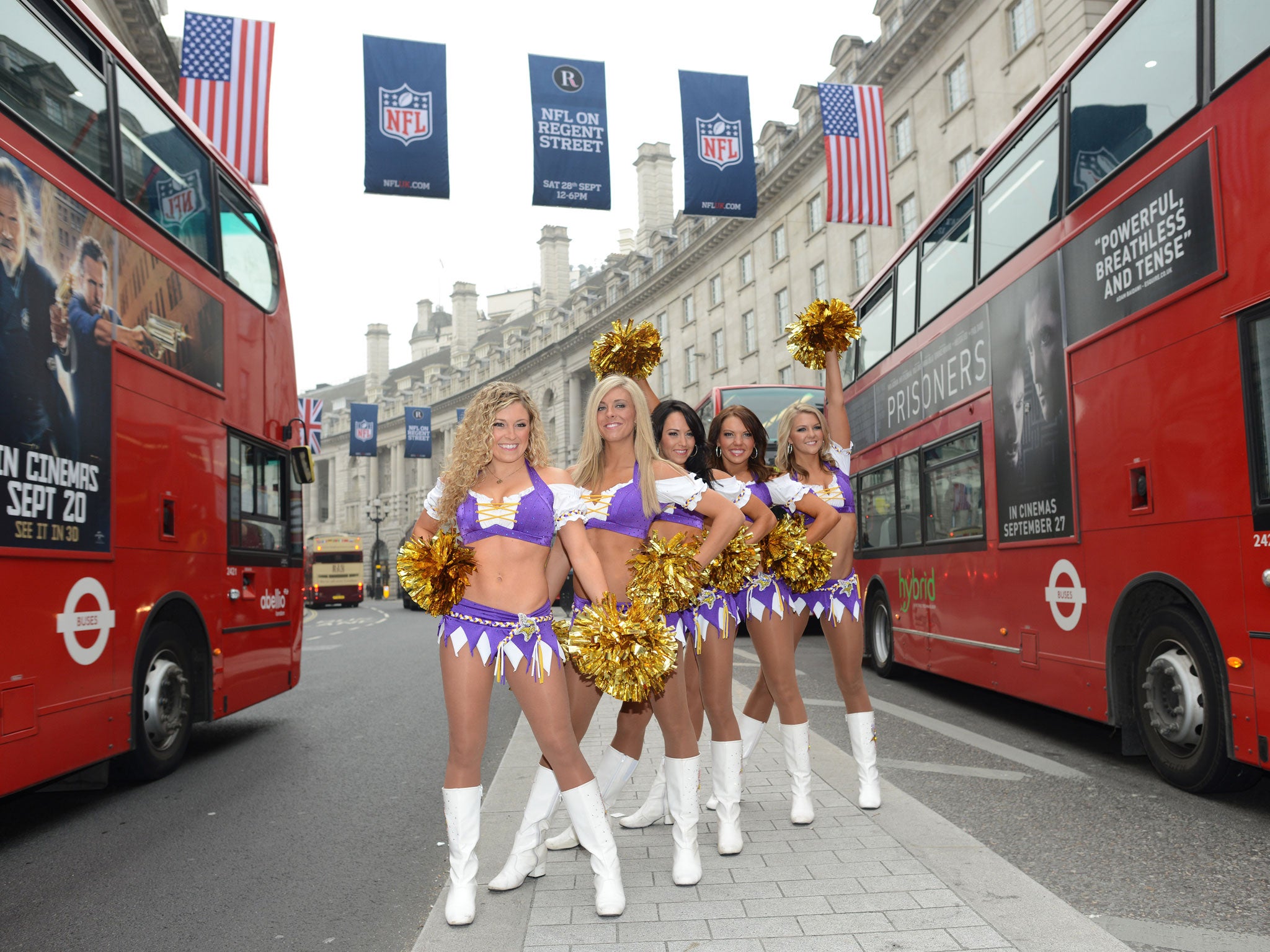Ashling O’Connor: Over-hyped and over here - why NFL’s invasion is a cover-up for a cry for help
If the NFL want to win us over, surely they should send the best teams

There is an exchange of football culture taking place across the Atlantic, which will be exhibited prominently at Wembley tomorrow when the Pittsburgh Steelers take on the Minnesota Vikings as part of a London double-header intended to woo British sports fans to American football.
Next month, the Jacksonville Jaguars and the San Francisco 49ers come to town for another sell-out game that could be a precursor to an NFL franchise in London.
Executives at Wembley are salivating at the prospect. And well they might with an £11m hole punched through the stadium’s last set of accounts due to a year-on-year reduction in the number of big events such as concerts.
Future NFL games – especially eight “home” fixtures a season under the London franchise scenario – are a neat way of offsetting the lost income from the anticipated exodus of debenture holders in 2017 after they are asked to renew one of the most expensive tickets in British sport.
But there is a much more significant flow of football capital between Britain and the US and it is going the other way.
While the NFL – battling an attendance decline at home – tries to bring its unique brand of the game into Europe, despite a previously failed attempt to establish a feeder league in the 1990s, football over here is being exported rather more successfully over there.
After paying $250m for the US broadcast rights to the Premier League over the next three seasons, NBC has put its marketing might behind an effort to crack the domestic audience most resistant to the lure of the beautiful game.
Its decision to go big on English football coincides with other investments, such as the acquisition of a Major League Soccer franchise in New York by Manchester City’s Abu Dhabi-based owners, that suggest those with money believe the US to be one of the fastest growing markets.
The early signs are that the tide of relative indifference might be turning. Despite scheduling that pits the Premier League against the NFL and the start of the NBA, with kick-off times in the small hours, NBC this week claimed record viewing figures.
The first 27 games were watched by a cumulative audience of 9.1m viewers, a 92 per cent year-on-year increase from 4.8m. The Manchester derby last weekend had an average audience of 852,000.
It’s still small – more than 25 million tuned in to NBC to watch the Dallas Cowboys play the New York Giants this month – but compares well to the impact America’s most popular sport makes on British viewers: an average of about 75,000 a game last season.
The Super Bowl attracted 4.3m across the BBC and Sky. Compare that with the 2010 World Cup final, which was watched by 24m people in the US.
At the grassroots, football is making inroads that NFL could only dream of. Driven by the exploding Hispanic population (who account for one in four people aged under 18), the game is played by an estimated 24m people in the US. According to Fifa, there are 4.2m registered players.
In the UK, Sport England’s research suggests that about 30,000 people play American football at least once a week but the British American Football Association (BAFA) has only 9,485 members, half of whom play for university teams. This comparison between the codes has nothing to do with personal taste. I like college football. I appreciate the tactical subtleties and loyal following.
In 12 years covering global sport, the biggest crowd I have been a part of was a game between the University of Michigan and San Diego State in 2004. The attendance at the Ann Arbor stadium that day was 109,432 and it blew my mind.
My complaint is that the NFL’s presence in London is so over-hyped. Even ardent fans would say the quality is not up to much. We send them Chelsea and Manchester City and in return we get the Vikings, which according to many analysts will be the worst team in the NFL this season, and the Steelers, predicted by Sports Illustrated’s Don Banks to finish last in their division. If the NFL wants to win us over, surely they should send us the best?
The modest grassroots advances American football is making in the UK, where BAFA hails the growth of the junior and women’s game, are laudable.
But the razzmatazz of the NFL shouldn’t fool anyone into thinking it could ever challenge the truly universal game of football. Next summer’s World Cup in Brazil, with games played in the same time-zone, will further chip away at the NFL’s domestic dominance which has arguably reached saturation point.
We should therefore see its European expansion plan for what it is: not a bold offensive move but an entirely defensive one.
Join our commenting forum
Join thought-provoking conversations, follow other Independent readers and see their replies
Comments